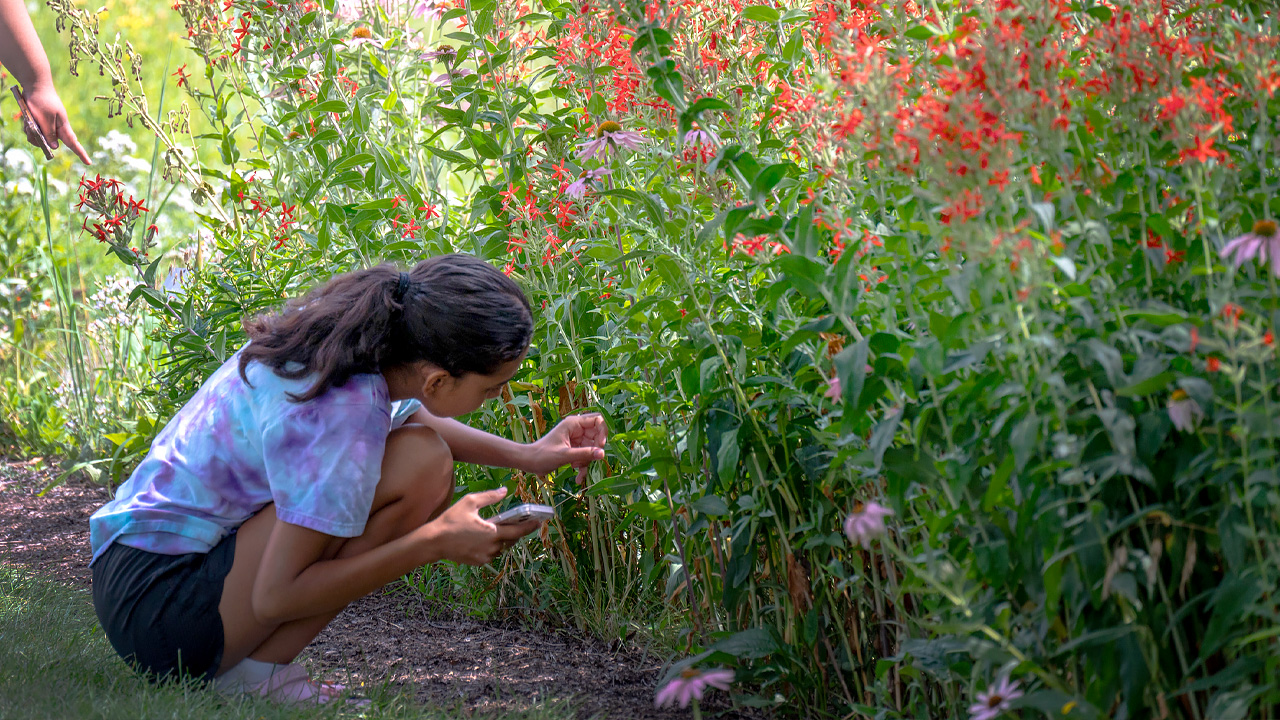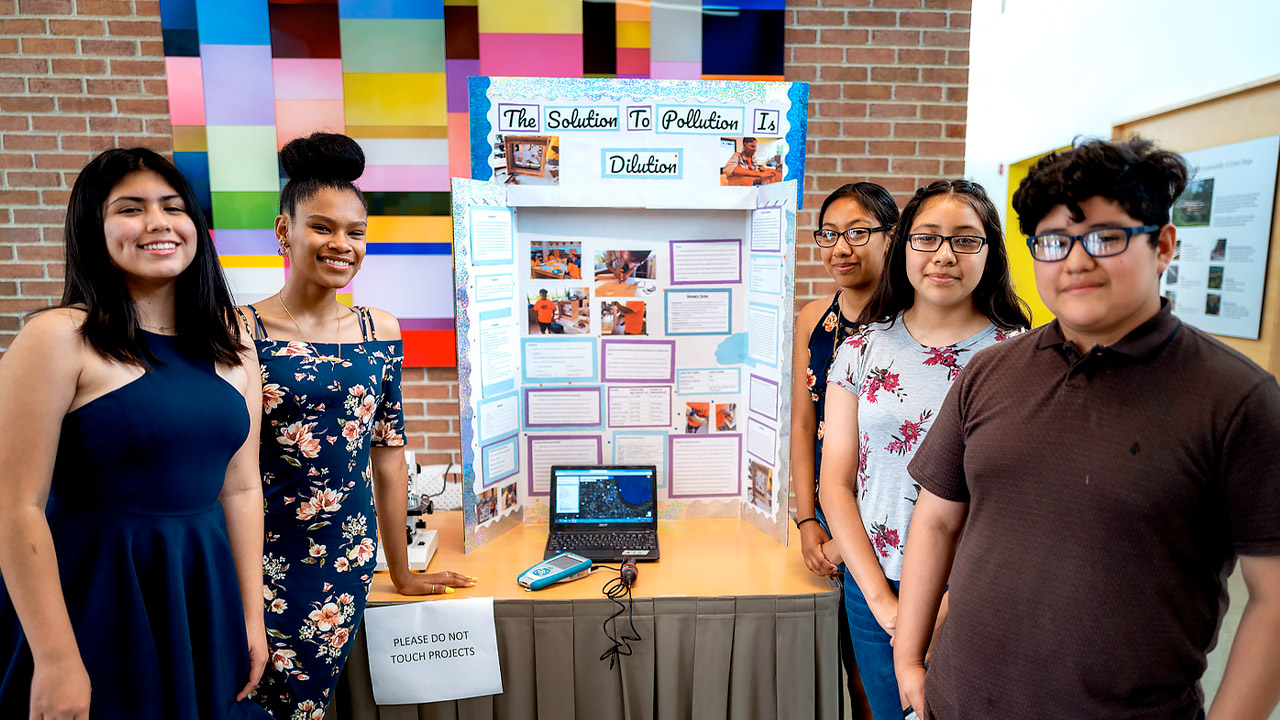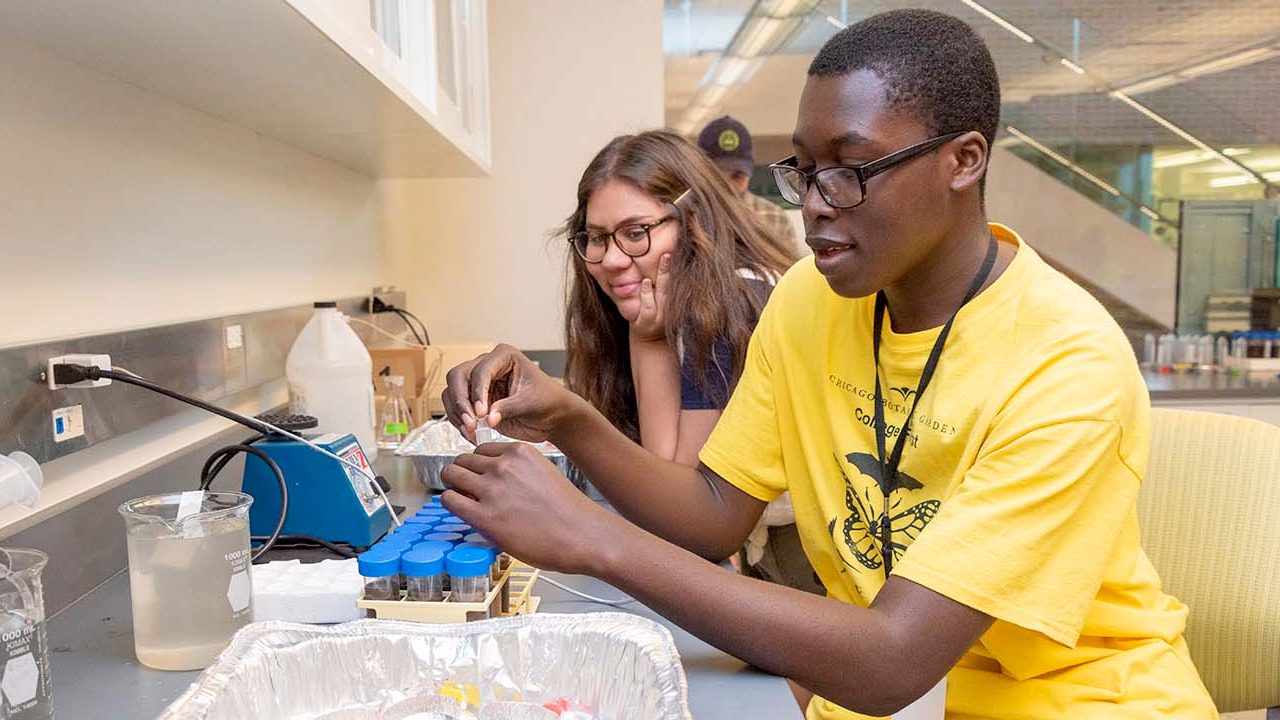The Science Career Continuum has been an exemplary subject of grant-funded research projects studying the value, efficacy, and success of youth programs.
Elements of Success in Chicago Botanic Garden's Science Career Continuum
Johnson, K. (2016). “Elements of Success in Chicago Botanic Garden’s Science Career Continuum.” Journal of Microbiology and Biology Education, 17(1), Mar. 2016.
View
Abstract
The Science Career Continuum at the Chicago Botanic Garden is a model program for successfully encouraging youth from diverse backgrounds into STEM careers. This program has shown that when students are given an opportunity to participate in real scientific research under the mentorship of a caring professional over multiple years, they are more likely to go to college and pursue STEM careers than their peers.
Conclusion
The SCC has shown that when students from diverse backgrounds are given an opportunity to participate in real scientific research under the mentorship of a caring professional over multiple years, they are better able to envision themselves pursuing STEM careers. By establishing a community of learners who share a passion for science and support each other’s personal achievement, the SCC expands participants’ notions of what is possible and brightens their futures, regardless of career choices they make.
Building Cultural Relevance
In 2017, the Chicago Botanic Garden received a grant from the United States Environmental Protection Agency (EPA) to create an environmental justice curriculum focusing on Chicago-area issues for the Science Career Continuum. The inspiration for this project came from a need to create affirmative connections between what students were learning during their summer at the Garden and what they were experiencing in their own lives and communities. Environmental justice examines the ways power, privilege, and oppression shape decisions about who has access to safe environments, so it offers a meaningful bridge between the science content students learn and their personal lives.
For this project, Garden educators collaborated with the Alliance of the Southeast, Friends of the Parks, Fuller Park Community Development Council, American Indian Center, and Chicago Eco House. Representatives from these community partners helped develop lesson plans, workshops, and activities for the summer program. Students visited the community partner sites and conducted experiments to learn about air quality, fertilizer runoff, water quality, and the effects of climate change.
Participants showed gains in content knowledge and positive shifts in attitudes and perceptions related to STEM. Students reported that they felt encouraged to find solutions to the environmental inequities that exist in their communities. They also talked about environmental justice at home with families and friends and that the curriculum influenced their educational and career aspirations. The program curriculum has evolved since this project ended, but has continued to make connections with social justice issues ever since.
This publication was developed under Assistance Agreement No.NE00E02261 awarded by the U.S. Environmental Protection Agency. It has not been formally reviewed by EPA. The views expressed in this document are solely those of the Chicago Horticultural Society/DBA Chicago Botanic Garden, and EPA does not endorse any products or commercial services mentioned in this publication.
Roads Taken: A Retrospective Study of Program Strategies and Long-term Impacts of Intensive, Multiyear STEM Youth Programs
College First, now part of the expanded Science Career Continuum (SCC), was one of about 70 programs that started in the early 1990s under the YouthALIVE! initiative of the Association of Science Technology Centers. Twenty years later, educators and researchers began wondering what happened to all these programs and the young people who participated in them. These questions were particularly relevant as the number of similar youth programs began growing in the country and could benefit from understanding how successful, long-lived programs like the SCC have affected the lives of participants.
In 2020, a group of researchers received a grant from the National Science Foundation to study six of the original YouthALIVE! programs, including the SCC, along with youth programs at the California Academy of Sciences, California Science Center, Natural History Museum of Utah, New York Hall of Science, and Science Museum of Minnesota. This research focused on describing the nature and level of impact in the lives of alumni who participate in STEM-focused, intensive, out-of-school-time programs.
The researchers gathered data from each program’s history, questionnaire responses from alumni who participated in these programs from 1995 to 2005, and alumni interviews. The six youth programs varied in strategies for engaging and supporting teens. For example, SCC paired students with mentors to work in different areas of the Garden, while other programs employed students as museum assistants to explain concepts to children, and others focused on life skills and academic achievement. Though the programs were different, some patterns emerged in the pathways and outcomes the students reported.
Collectively, the alumni reported that these programs had a positive effect on their social-emotional development, STEM identity, career choices, and community involvement. Among alumni respondents, 78 percent were highly engaged in STEM as adults. There were many different variations in pathways that individual students took that influenced their STEM involvement.
At the Garden, students have always been selected for their interest in nature and science rather than academic achievement or motivation to pursue a career in STEM. Originally created as a program that provided summer internships, mentoring, and college support, over the years the program has been enhanced with more environmental science lessons and opportunities for near-peer mentoring. The Roads Taken research revealed that the strength of our program is in the exposure to STEM research and careers and the social-emotional development students experience while engaged in the program over time.
The Roads Taken research provides evidence for how STEM-focused youth programs like the Garden’s SCC benefit the museum/garden, the students, and the community. Programs like the SCC matter because they create opportunities for meaningful relationships among all participants, provide a public service to the community, express the institution’s mission and values, and build future support for the institution.






